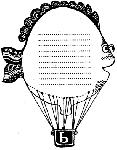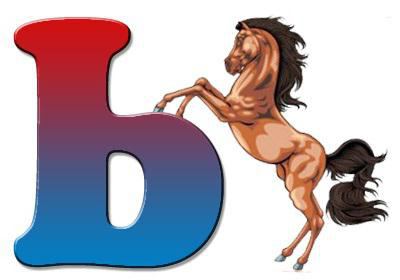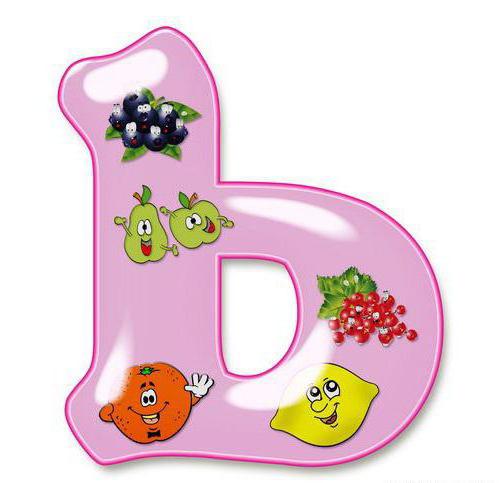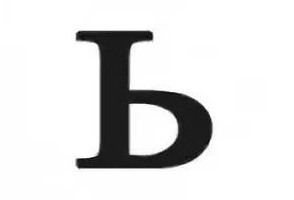soft sign serves to indicate the softness of consonants.
I am a magician.
I want -
I will appear and transform
Chalk, which they write at school,
IN A GROUND, dangerous at sea.
Who is the magician - guess
Raise your hand above!
144. Read the words. Explain the difference in spelling, sound and meaning of these words.
CON - HORSE
ANGLE - COAL
POSTER - CRY
STEEL - STEEL
chalk - chalk
BLOOD - BLOOD
145. In the pairs of words written below, the soft sign is written not at the end of the word, but in the middle. The sound, meaning and spelling also change.
GORKI - GORKI
BANK - BANK
GALKA - PEBLES
SHELF - POLKA
Make up and write sentences with some pairs of words.
A soft sign that comes after consonants and softens them in masculine and female.
146. Rewrite the words and determine the gender of nouns.
For example: SHADOW - f. R.
KISSEL, STUMP, BEANS, STEPPE, KING, SHAWL, HEDGE.
147. Words in which one letter is lost are inscribed in the balls. This letter b. She flew off to hot-air balloon. Put a soft sign at the end of the words and write the resulting words into a balloon.

A soft sign that stands between two consonants and softens the consonant in front.
148. Read the words aloud. Try to say a few words without a soft sign.
BOY. WALKING, ICE ICE, LETTER, ALBUM, COAT, REST, TEACHER, LIGHTS.
See how the sound of the words has changed?
Without a soft sign, they sound wrong.
This abstract is intended for conducting a group lesson with children of grade 3 with a speech conclusion “Systemic underdevelopment of speech”.
The topic of the speech therapy lesson: "A soft sign at the end and in the middle of a word."
Goals:
Correctional training:
- learn to indicate the softness of consonants in writing with the letter b
- develop spelling skills
Correction-developing:
- develop phonemic perception and hearing
- development of general, fine and articulatory motor skills.
Correctional and educational:
- educate the ability to interact with each other,
- develop interest in speech therapy.
move speech therapy session:
1. Organizational moment.
Say hello to guests
Smile to everyone around you.
Give a hand to a friend on the left
And quickly get up in a circle.
And now the neighbor on the right
You pass the ball.
Call a friend by name
And wish you a good day.
2. The rule of speech.
What do we do in speech therapy classes?
Pronouncing sounds clearly
We listen carefully!
We read the letters correctly
We write them carefully.
To correctly pronounce all sounds, let's do exercises for the tongue.
Articulation gymnastics.
The tongue comes out for a walk,
He goes around the house.
Who is here and who is there
He looks around.
Looks like comb your teeth
We comb our lips.
Was on a swing
flew up,
And went downstairs.
3. Finger gymnastics.
Fingers friendly family,
They cannot live without each other.
Here is a large one, and this is a medium one,
Nameless and last
Our little finger baby.
Oops, forgot the pointer.
So that the fingers live together
Let's connect them
And perform movements.
4. The topic of speech therapy classes.
You will learn the topic of today's lesson if you guess the riddle:
What is the letter, who knows?
Doesn't mean sound.
Can only show
How to read a consonant.
That's right, it's a soft sign: "b".
Let's draw a "b" sign
Just a little bit like this.
A drop will soften the letter,
The word is soft.
Children write "b" on millet.
The topic of today's lesson is "Soft sign at the end and in the middle of a word."
What can you say about the soft sign?
- "b" is a letter.
- "b" does not represent any sound.
- "b" can be written but not read.
What does soft sign mean?
It denotes the softness of a consonant.
5. Phonemic perception.
In the cards with a chip, close the consonant that is heard at the end of the word.
Salt, horse, nose, ferret, elk, stump, mosquito, crane, chalk.
Remember the words that I called.
6. The game "Name the words with a soft sign."
Look at the pictures (presentation). Name the pictures in the name of which the consonant sound at the end of the word is pronounced softly.
Elk, horse, rain, carrot, bear, primer, goose, anchor.
Read all the words. What do all these words have in common?
In all words, a soft sign is written.
7. The game "Insert a soft sign."
Read the words, insert "b" where necessary.
8. Fizminutka (musical).
We did a great job
And a little tired.
Get ready all the boys
Dance Charge!
We clap our hands:
Friendly, more fun.
Our feet are pounding
Friendly more fun.
Let's hit the knees:
Hush, hush, hush.
Our pens rise
Higher, higher, higher.
Our hands are spinning
They dropped below.
twirled, twirled
And they stopped.
9. Riddle.
Both boys and girls
They love us very much in winter,
They cut the ice with a thin pattern,
They don't want to go home.
We are graceful and light
We are curly...
(skates)
The word "skates" is posted on the board. The speech therapist reads the word with the children.
Where is the "b" in the word "skates"?
Why is there a soft sign after the "H"? (Because "N" sounds soft.)
Yes, a soft sign can also be in the middle of a word.
The soft sign is such a trickster!
In the word he stood in the middle,
The letters replaced the featherbed.
between two consonants
Feels great.
10. The game "Hide the soft sign in the middle."
Change the words so that the soft sign is in the middle of the word.
Horse - skates
Stump - stumps
Ferrets - ferrets
Where in the word can there be "b"?
11. Work with offers.
Read the suggestions. What letter is missing in the words?
Los. - strong beast ..
He eats grass and branches, loves salt.
A moose was hiding in the thicket of the forest.
He has big branched horns
Compose the text following the following sequence:
1) A sentence with a word that ends in "b".
2) A sentence with a word that has "b" in the middle between vowels.
3) A sentence with a word that ends in "b".
4) A sentence where there are two words with "b".
Read the entire text. What do we know about moose?
Write out the words with a soft sign from the text. Underline the consonant letter in the words and the soft sign after it.
12. The result of the lesson.
When is a soft sign written in words?
When is a consonant pronounced softly?
A soft sign with a consonant is friendly.
Needed at the end and middle of a word.
We write a sign after the consonants,
If we hear them soft.
Homework: learn a poem about a soft sign.
Galimova Galina Pavlovna,
teacher speech therapist,
correctional boarding school of the VIII type,
Bashkortostan, Yanaul
A soft sign is one of the letters of the Russian alphabet that does not have its own sound. It cannot be pronounced phonetically, but despite this, it is significant and plays a very important role.
The history of the soft sign
At the stage of the birth of the great and mighty Russian language, our familiar soft sign was used as a very short version of the letter and. Over time, the soft sign lost this purpose, but, like the letter and, continued to soften the consonant in front.
In the Cernovian Slavic dialect, the concept of using the letter b almost the same as in traditional Russian, with the exception of some details. Firstly, in Church Slavonic, a soft sign, contrary to the rules and canons of the Russian language, is written after the hissing letters at the end of m.r. nouns. (bucket, guard). Secondly, a soft sign in Church Slavonic was written at the end of any short passive participles(see, hear).
In some cases, it was permissible not to put a soft sign between consonants where it should be. For example, instead of the word darkness could write tma, etc.
Soft sign functions
We all know that consonants are soft and hard. Some consonants are always soft, and some are softened by other letters. For example, iotized vowels soften the hard consonant that precedes them. The soft sign performs exactly the same function as these vowels - it softens the consonants in front of it:
- softens the front consonant;
- performs the function of separation in words before iotized vowels and vowel about in borrowed words;
- does not carry a special phonetic load, but retains the grammatical form in some words (mouse, dry land, wilderness).
![]()
Let's look at a few special occasions, in which a soft sign can occur in the middle of a word.
Soft sign between two consonants
Example: horse ki, bathhouse, golf f, polka, hospital, coal.
In this case, the soft sign simply softens the consonant in front. Rule: a soft sign in the middle of a word is not written between consonant combinations schn, schk, ch, chk.
Soft sign between consonant and iotized vowel (separating)
Example: trees, logs, pickles, learning, monkey, bindweed, necklace.
In this case, the soft sign softens the consonant in front. The iotized vowel is decomposed into two sounds .
A soft sign can stand not only in front of iotized vowels.
Example: broth, champignon, canyon, medallion.
Most often this happens in foreign loanwords.

How not to make a mistake with writing a soft sign in the middle and end of a word?
A soft sign at the end of a word is needed in order to soften the consonant in front.
Examples: coal, salt, moth, tulle, pain, prowess, calm, scrap, teacher, password.
Sounds h, w, sh according to the canons of the Russian language, they cannot be soft a priori, but in some cases a soft sign can be placed after them. It does not soften the consonant in front, but is needed to preserve grammatical form. Let's see in what cases this can happen:
- Feminine nouns (rye, silence, mouse).
- Verbs in all forms (drain, save, build, wash).
- For adverbs ending in h and w(backward, completely) and one adverb on and(wide open).
When you do not need to put a soft sign after hissing:
- Masculine nouns (reeds, garage, guard).
- (good, pretty, fresh).
- Adverbs for and Besides wide open(impatient, married, already).
- Feminine nouns in plural genitive(pears, clouds, heaps).

A little about transfer
How to hyphenate words with a soft sign in the middle of a word? This is worth considering separately. Words with a soft sign in the middle of a word often cause difficulties when you need to move the word to another line. And there are many mistakes of this kind in the texts.
The transfer of words with a soft sign in the middle is carried out as follows: first you need to divide the word that you want to transfer into syllables. Remember that there are as many syllables as there are vowels in a word.
Step 1 Example: monkey.
It is important to remember that when transferring a word with a separating soft sign to another line, it is impossible to separate the soft sign from the consonant in front - the transfer should be carried out only with it.
Step 2 Example: monkey(an example of a correct transfer).
An important detail: if a soft character is located at the end of a word, it cannot be transferred to another line.
Wrong example: mother-in-law, love, bear.
Correct example: mother-in-law, love, honey-because.
When transferring, you cannot leave one letter on the line. This rule applies not only to words with a soft sign in the middle of a word, but also to any others.

Exercises
Soft sign in the middle of a word. 1 class.
1. Underline those words in which the soft sign softens the front consonant:
Weeds, elk, fire, trees, salt, monkey, stakes, flat, letter, sable, deer, strong, trill, medallion, spruce forest, crane, horse, family, days, coat, caramel, judges, blood, love, nightingales, troublemaker, gimp, cortel, imposing.
2. Enter a soft sign where it is needed:
Quiet_, reeds_, heard_, garage_, sleeping_, rozh_, courage_, mirage_, stove_, cut_, married_, good_, beach_, guard_, guard_, already_, wide open_, unbearable_, beach_, backhand_, shore_, carried away_, rook_, solid_.
3. Follow phonetic parsing given words (words can be given to children by variant or each child can be given an individual word):
Portiere, backstage, expanse, sommelier, barrier.
TSYA and TSYA - which is correct?
Unfortunately, many people make a mistake in this seemingly elementary spelling. How do you know what to write at the end of a verb?
You just need to ask a question to the verb. If the verb answers the question "what to do", a soft sign is put. If the question is "what does it do?" - soft sign is not needed.
Example: get out (what to do?), agree (what to do?); show off (what to do?).
Removes (what is he doing?), agrees (what is he doing?), flaunts (what is he doing?).
Visual and auditory warning dictations.
Album, alarm clock, Bulka, boulevard, waltz, cornflowers, money, spruce forest, dawn, droplet, rings, skates, porch, ice floes, boy, lights, perches, Olga, palm tree, coat, fingers, hemp, letter, polka, Monday, benefit, bubbles, beekeeper, rails, radish, blue, icicle, tulip, embers, teacher, physical education, film, student.
Big, more, it hurts, take it, bitter, small, soapy, less, impossible, right, how much, steel, strong, only, thinner, charcoal, reading room (room).
1. We walked along the boulevard. There were beautiful palm trees. 2. A hare hid in a dense spruce forest. He was afraid of the boy. 3. A drop fell on Katya's palm. It's icicles melting. 4. Gymnasts performed exercises on the rings.
1. Grandpa fixes the porch. 2. Large ice floes are floating along the river. 3. The student solved the problems correctly. 4. The boy has small perches in the jar.
1. Olga wrote a letter to the teacher. 2. I have a fur collar on my coat. 3. Musicians have strong fingers. 4. They cut down the pines. Only stumps remained.
1. On Monday we have a physical education lesson. We must take skates. 2. Kostya blew soap bubbles. One bubble was very large. 3. The guys came to the bee house. Olga gave them honey. 4. The train quickly rushes along the rails. The rails are steel.
1. Asya draws tulips in the album. 2. There are a lot of cornflowers in the field. 3. Steel skates quickly run across the ice. 4. The red dawn in the sky lit up.
1. Radish is bitter, but healthy. 2. Dance polka and waltz with us. 3. Protect the birds. They are of great benefit. 4. The first lesson is physical education. Attendant, take the ball and rings.
1. A crow is bigger than a jackdaw. 2. Five is less than ten. 3. How many fingers are on two hands? 4. Paper is thinner than cardboard.
At dawn the children were in the meadow. Dew drops covered the grass. How many flowers in the meadow! Children wove wreaths from them. Gathered a large bouquet of flowers.
Holiday.
On Monday we have a holiday. The boys put up colored lights. The girls put a large bouquet in a vase. Olga will play the waltz. I will dance the polka. Everyone is ready for the holiday.
At the bee house.
Grandfather Zakhar works at a beekeeper. Every day the boys run to him. They know not to touch the bees. The bees sting painfully. But they are of great benefit. Bees give honey.
On a collective farm.
We have a beekeeper on the farm. Seryozha Malkov's father works at the bee-keeper. The students go to help him. Uncle Petya teaches schoolchildren how to take honey correctly.
Lena is sick.
It was cold. Lena ran without a coat. Now she is sick. The doctor gave Lena bitter drops. Lena doesn't want to drink them, but she should. It is impossible without a coat in winter!
On skates.
The boy has new skates. He put on his coat and took his skates. Get to the river! There is ice. Skates run well on ice.
Selective dictations.
Elephants are smart
Elephants are quiet
Elephants are calm and strong.
(E. Blaginina.)
We walked along Neglinnaya,
We went to the boulevard
They bought us blue-blue
Pretty red ball.
(S. Mikhalkov.)
The icicle was afraid of heights,
The icicle began to cry from fright.
And so again came the slush,
And so again you are in galoshes.
(A. Kondratiev.)
Letter
Won't go anywhere
But put it in the box -
It will run
will fly by
Will float
Thousand miles of way.
(S. Marshak.)
The boy took her hand -
There is no snowflake.
And on the mitten
A drop of water.
(N. Polyakova.)
Caution on ice
I go skating...
(L. Zubkova.)
Schoolboy, schoolboy, you are a strong man!
You carry the globe like a ball.
(S. Marshak.)
Full of noisy fun
boulevards and gardens.
And rejoice as much as you want
Jump in every way.
(A. Barto.)
I walk, I walk, I walk
I can't find mushrooms.
And still in the basket
Only red fly agaric.
(V. Nezval.)
Self-dictations.
If the boy loves work,
Pointing a finger at a book
They write about it here:
He is a good boy).
Planted trees
Near the school ... (porch).
The cold days have arrived.
We need skis and ... (skates).
In winter, everyone
You need warm ... (coat).
Commented letter.
1. Yesterday was a cloudy day. 2. I remember summer days. 3. Misha sat on a stump. 4. Only small stumps are visible around.
1. The wind drove dust along the road. 2. It was dusty and stuffy outside. 3. I have a strong toothache. 4. Kolya hit his leg painfully.
1. Steel is melted in this furnace. 2. Grandfather has a steel saber. 3. April - the second month of spring. 4. The April sun pleases everyone.
1. We dance a fun polka. 2. Put books on the shelf. 3. Vasya was given a puppy Bulka. 4. I love raisin bun.
1. The coals went out in the stove. 2. The corners of the scarf are blue. 3. Seryozha wept bitterly. 4. There is a big slide in the park.
Dima had a dog Kapelka. Now she is gone. Little Dima is crying. Looking for a dog all day. Mom came home from work. Found Droplet under the porch.
It was winter. Vitya was skating on the ice. He's feeling hot. Vitya began to eat snow. Now he is sick. It hurts to swallow. You can't eat snow, Vitya!
Gene is already big. The mother gave the boy money. Gena goes to the cinema. Afternoon film for schoolchildren. Gena loves cartoons. Bulka the dog is whining. But dogs are not allowed in the movies. Bulka is waiting for Gena at home.
Creative dictations.
Spruce, spruce forest.
Teacher, teacher.
Furniture, furniture.
Coal, coal.
Beast, animals.
Fire, lights.
Perch, perch.
Horse, skates.
Control dictations.
Dul strong wind. Lil rain. It was impossible to play. The boys played at home. The dog Zhulka went under the porch. Cat Vaska sleeps on a chair. Autumn came. (23 words.)
Yura is a student. The father gave the boy an album. Yura took a brush and paints. He draws a winter day. The boulevard is white with snow. There are small trees along the boulevard. They are also in the snow. (27 words)
Autumn came. The day got shorter. Maples and birches are bare. Only the spruce forest is green. Thin pieces of ice crunch in the morning. Chilled fingers. It's time to put on a warm coat. (23 words.)
Guys on the ice. The boys are skating. The dog Palma is with them. She barks. Little Anya is crying bitterly. She's scared. Don't cry, Anya! Palma is a smart dog. (26 words)
Snow lady.
Clear day. Snow all around. Little Misha is at home. He looks out the window. The boys are making a snowman. Baba is big, as tall as Misha. Eyes are coals. That's so grandma! (25 words)
On the boulevard
Children play on the boulevard. They make noise. Lena has a Yulka doll. Lena wears Yulia. Sleep, Julia! And Yulia doesn't want to sleep. (20 words)
